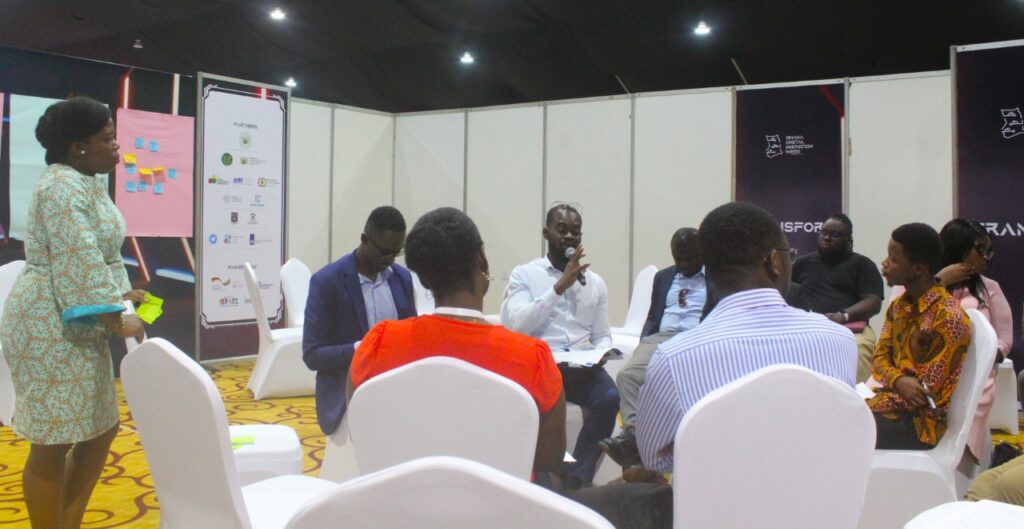Integrated innovation, digital ecosystems said to be essential for Africa’s economic transformation
 The African Centre for Economic Transformation (ACET), an economic policy institute, says a regionally integrated innovation and digital ecosystems are essential for Africa’s economic transformation.
The African Centre for Economic Transformation (ACET), an economic policy institute, says a regionally integrated innovation and digital ecosystems are essential for Africa’s economic transformation.
According to the African Centre for Economic Transformation’s 2022 African Transformation Report, “Integrating to Transform”, Sub-Saharan Africa had 477 million subscribers to mobile service and 272 million mobile internet users in 2020.
Sub-Saharan Africa’s mobile industry contributed $155 billion to its gross domestic product, led by productivity gains in financial services, education, health, retail, agriculture, and government, yet internet adoption in Africa remains low.
The report says the continent lags the rest of the world in the availability, speed and access of broadband, with landlocked countries and rural areas faring the worst.
Most mobile phone subscribers, ACET stated, did not have access to the internet, and nearly 300 million Africans lived far from a fixed broadband connection.
It said, while there had been high profile successes in some countries – mostly related to mobile money – Africa’s fragmented digital market suffered high taxes, expensive licenses, and regulatory gaps that permitted excessive market concentration, limited competition, and the world’s highest data price.
Therefore, ACET said, even though digital and innovation policy in Africa was largely new and untested, an integrated innovation and digital ecosystems were essential for Africa’s economic transformation and development.
The African Centre for Economic Transformation, at a workshop during the 2022 Ghana Digital Innovation Week (GDIW2022) held at the Grand Arena of the Accra International Conference Centre, brainstormed on “Co-creating Digital Strategies and Policies for Ghana’s Context”.
The nearly two-hour workshop, spearheaded by ACET, formed part of the three-day event to mobilise collective action and investment to catalyse growth in Ghana’s innovation ecosystem.
The stakeholders, including technology enthusiasts, identified that African policymakers faced a wide array of challenges in accelerating Africa’s move to innovative and digital economies.
They said it was imperative that African leaders, policymakers, and digital and innovation stakeholders collectively developed a new policy mix to respond to pressing digital, innovation, and development challenges.
The new policy mix, they underscored, would address a wide range of policy issues that were required to get the most from innovation and digital technologies, and further promote collaboration in the ecosystem.
Ms Freda Yawson, Senior Manager, ACET, who led the team in the brainstorming session, said the policy mix, among others, would support new digital platforms to develop, test, implement, learn from, and refine innovations and technology locally, nationally and regionally.
On formulating strategies and establishing policy frameworks, she said, with input and experience from across the digital and innovative ecosystem, African governments could formulate and implement robust digital and innovative strategies, backed by adequate policy frameworks.
Ms Yawson said creating such strategies and frameworks required taking into account the available national and global evidence, seeking input from all stakeholders, allocating adequate financial resources, and investing in human capacity for effective transformation.
She said there were a number of organisations that were advocating for a startup policy for the technology and innovation ecosystem, adding that the policy was still in the draft stage and that consultations were ongoing with relevant ministries and agencies.
Mr Patrick Keli Atitsogbui, the Head of IT Standards at the National Information Technology Agency (NITA), sharing his view on establishing policy frameworks in the technology ecosystem said, when the ecosystem was overly regulated, it could stifle or restrict innovation.
He said even though such a regulatory framework was non-negotiable, it should be fashioned on a sustained commitment and institutional cooperation from key stakeholders to make it more sustainable.
Mr Atitsogbui said building human capital for innovation and digital transformation was vital, adding that the challenge was, however, poor learning and teaching approach in digital skills.
Mr Ammishaddai Ofori, Lead Consultant of BDAC Ghana Limited, said ensuring that there was a widespread availability of digital skills would require restructuring the educational curriculum to meet the needs and trends in the digital economy.
“Experiential learning approaches can be adopted. This can be effectively done by teaching the people to do hands-on stuff. The approach should be interesting enough for people to relate to it easily,” he said.
Source: GNA
